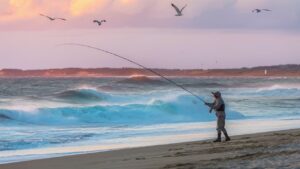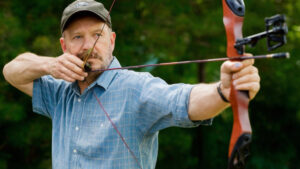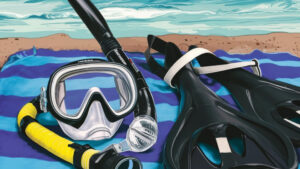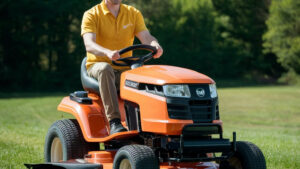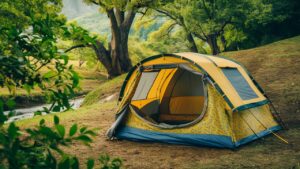A fan heater can be safe in a tent if used with caution and proper ventilation. However, it’s important to never leave it unattended, especially while sleeping, as it can pose a fire hazard.
When using a fan heater in a tent, ensure it has safety features like automatic shut-off in case of tipping over and an oxygen sensor to prevent oxygen depletion. Additionally, be mindful of the heater’s placement on a stable surface away from flammable materials.
By following these safety measures, you can enjoy the warmth of a fan heater in your tent without compromising safety.
Safety Tips For Using A Fan Heater In A Tent
Choose the Right Type of Heater: Select an electric, propane, or butane heater with an automatic shut-off feature and an oxygen sensor.
Ensure Proper Ventilation: Keep the tent flaps partially open to allow fresh air to circulate.
Keep the Heater Away from Flammable Materials: Place the heater on a stable, non-flammable surface and keep it away from any combustible items.
Do Not Leave the Heater Unattended: Always turn off the heater when leaving the tent or going to sleep.
Use a Carbon Monoxide Detector: Install a battery-operated carbon monoxide alarm in the tent to monitor gas levels.
Be Prepared for Emergencies: Have a fire extinguisher and a first-aid kit on hand in case of any accidents.
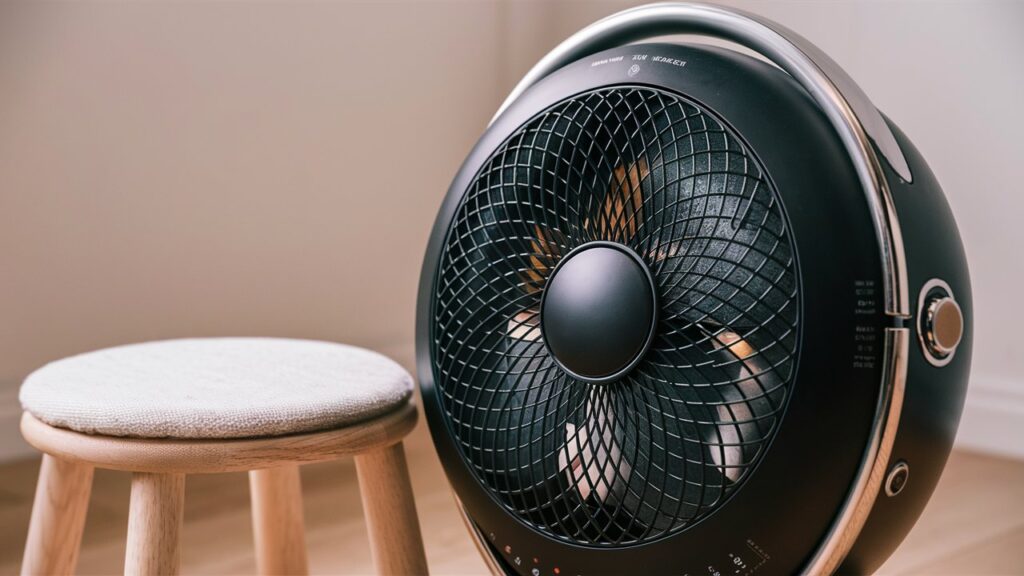
Alternatives To Fan Heaters For Heating Tents
When it comes to heating tents, alternatives to fan heaters include low-power electric heaters that can be used safely at night. It’s important to choose heaters with automatic shut-off features and oxygen sensors to ensure safety. Avoid leaving electric heaters running overnight to minimize fire risks and potential safety hazards.
| Alternatives to Fan Heaters for Heating Tents |
| Electric Radiant Heaters, Propane Heaters, Catalytic Heaters offer safe heating options for tents. |
| Electric Radiant Heaters are efficient and ideal for small spaces like tents, providing quick warmth. |
| Propane Heaters are portable and powerful, but ensure proper ventilation to prevent carbon monoxide buildup. |
| Catalytic Heaters are safe for indoor use, emitting low levels of carbon monoxide and suitable for tent heating. |
Preparing For Cold Weather Camping
When camping in cold weather, it’s important to choose a tent designed for the conditions. Look for a tent with good insulation and a sturdy structure to withstand wind and snow.
Insulating the tent is crucial for retaining heat. Consider using a thermal liner or insulating the floor with a foam pad to prevent heat loss to the ground.
Invest in a high-quality sleeping bag and insulating sleeping pad to provide essential insulation from the cold ground.
Layer up with warm clothing, including thermal underwear, fleece jackets, and wool hats and gloves. Additionally, bring hand warmers and hot water bottles to keep warm inside the tent.
Frequently Asked Questions
Can You Have A Fan Heater In A Tent?
Yes, low-power electric fan heaters can be used in tents, but never leave them on overnight for safety reasons.
What Type Of Heater Is Safe For A Tent?
An electric, propane, or butane heater with automatic shut-off and oxygen sensor is safe for a tent. Avoid leaving it on overnight.
Are Fan Heaters Safe To Leave On Overnight?
It is not safe to leave a fan heater on overnight in a tent. Electric heaters are responsible for around one-third of household appliance fires during winter. Moreover, fan heaters can dry up nasal passages and cause discomfort. It is recommended to use indoor-safe heaters with automatic shut-off features and oxygen sensors for safe heating in tents.
Can You Leave An Electric Heater On All Night In A Tent?
It is not safe to leave an electric heater on all night in a tent due to fire risk and potential danger from combustible materials.
Conclusion
When using a fan heater in a tent, safety should be the top priority. It’s crucial to choose a heater with safety features such as automatic shut-off and oxygen sensors to prevent potential risks. Additionally, never leave the heater unattended or running overnight to ensure a safe camping experience.


